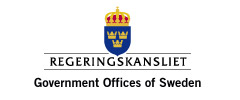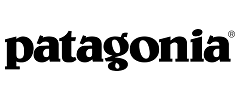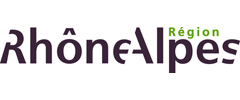Gender & Rights

WECF believes that the right to a healthy environment is the birthright of every person regardless of gender, race, colour, national origin, or income with respect to the development, implementation, and enforcement of environmental laws. In many instances, those groups in society that are least empowered, are most likely to suffer from environmental pollution ...
Yet, according to the Office of the United Nations High Commissioner for Human Rights, millions of women around the world continue to experience discrimination due to unequal access to land, property and housing. Furthermore, the economic and social discrimination that women face results in fewer and poorer life choices for women, for example making them vulnerable for human trafficking. In addition, women face gender-based violence (affecting at least 30 % of women globally) and are denied sexual and reproductive health rights in many parts of the world. Finally, female human rights defenders are often ostracized by their communities and seen as a threat to religion, honour or culture, while women’s crucial role in peace and security is often overlooked, as are the particular risks they face in conflict situations (source: OHCHR).
WECF believes that women need to be included in decision-making, both on environmental justice and on all other issues. Concerning sustainability and environmental degradation, women often suffer more due to their large share in the world’s poorest population, which is often dependent on their environment for their income, their general responsibility in large parts of the world for the production and preparation of food, the cleaning and the collection of fuel, and their lack of protection from natural disasters. However, women are also important sources for solutions for climate change and therefore their voices need not to be overlooked.
Latest News & Reports
Meet the Winners of the Gender Just Climate Solutions Award at COP24
On the 70th anniversary of the Universal Declaration of Human Rights, we awarded Gender Just Climate Solutions Winners at the climate negotiations in Katowice, Poland
11.12.2018
#Ruralwomen: join our Women2030 campaign!
15.10.2018
Congratulations Sascha!
Named thirty-third most influential sustainability fighter in the Netherlands
08.10.2018
Find more items on the page News & Reports.
Latest Press Release
1.5°C IS POSSIBLE: gender just climate solutions are showing the way!
Press release: for immediate release
15.10.2018
Featured Project
Promotion of green technologies in Uganda
In cooperation with our local partner organization ARUWE, WECF implements a project in Mulagi Sub-county (Uganda) to promote sustainable technologies for renewable energy
Donors: Erbacher Stiftung
Partners: ARUWE
Duration: 05/2016 - 04/2017
Find more items on the page Projects & Donors.
Latest Publications
Economical and social empowerment of remote communities in Uganda
Publication on the impact of integrating conservation agriculture, gender, business and accessibility to financial resources on remote communities in rural Uganda
29.10.2018
Report on National Workshop on SDGs in Georgia
On the Interlinkages of Environment & Health in the 2030 Agenda for Sustainable Development
23.05.2018
From Marrakesh to Marrakesh: The rise of gender equality in the global climate governance and climate action
WECF’s experts publish chapter in Routledge Handbook of Human Rights and Climate Governance
16.04.2018
Gender Dimensions of Hazardous Chemicals and Waste policies under the Basel, Rotterdam and Stockholm Conventions
WECF, WEP and BaliFokus with support of the BRS Conventions secretariat have launched the advanced copy of the study "Gender Dimensions of Hazardous Chemicals and Waste Policies under the Basel, Rotterdam and Stockholm Conventions'
30.11.2017
Gender in Sustainable Development – Collection of Exercises for Training of Trainers
Practical training manual for trainers on gender-responsive exercises
18.11.2017
Findings of a literature study: Plastics, Gender and the Environment
Lifecycle of plastics and its impacts on women and men from production to (marine) litter
07.11.2017
How POPs, hazardous chemicals and waste have different exposures and impacts on women's and men's health
WECF presents a film on the gender dimensions of POPs and hazardous chemicals in Nigeria
08.06.2017
Find more items on the page Publications.












































